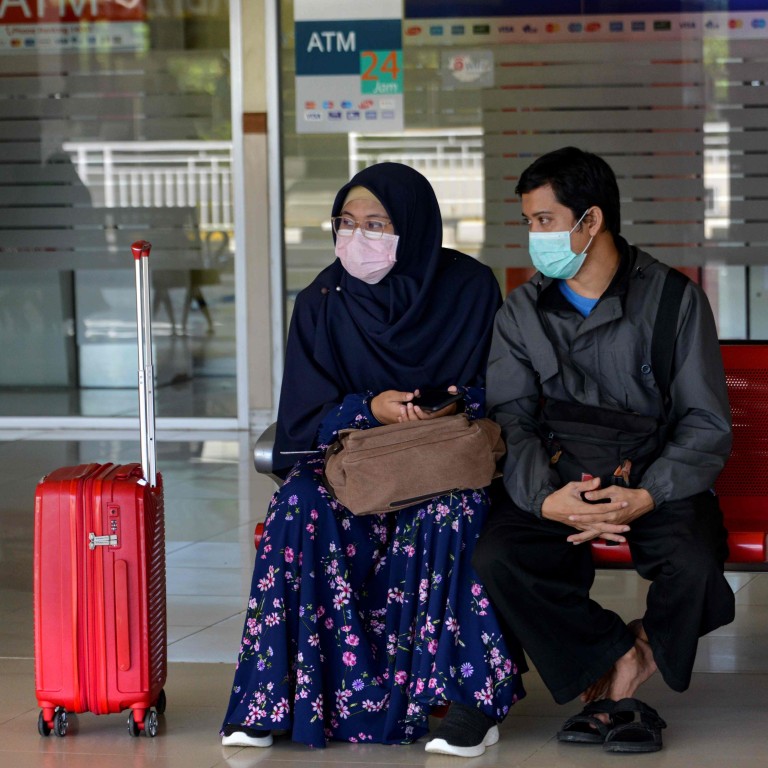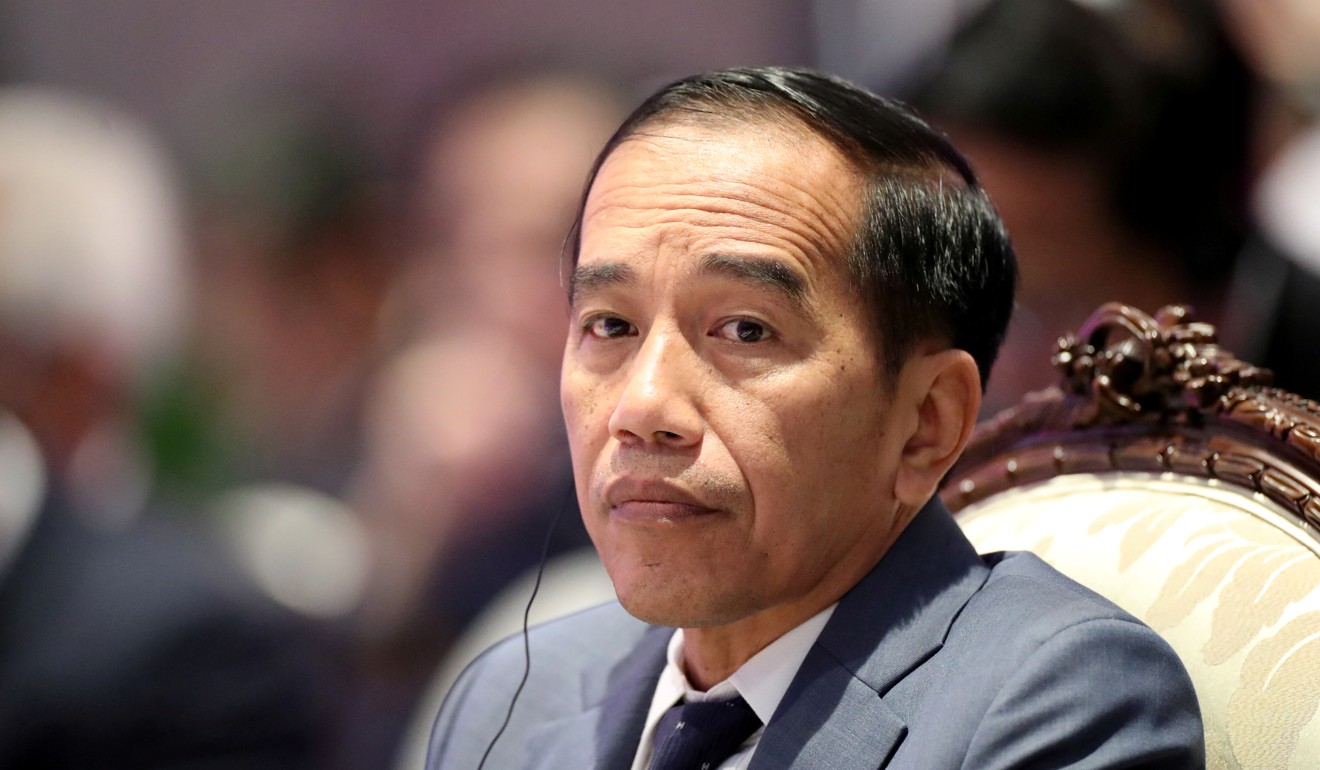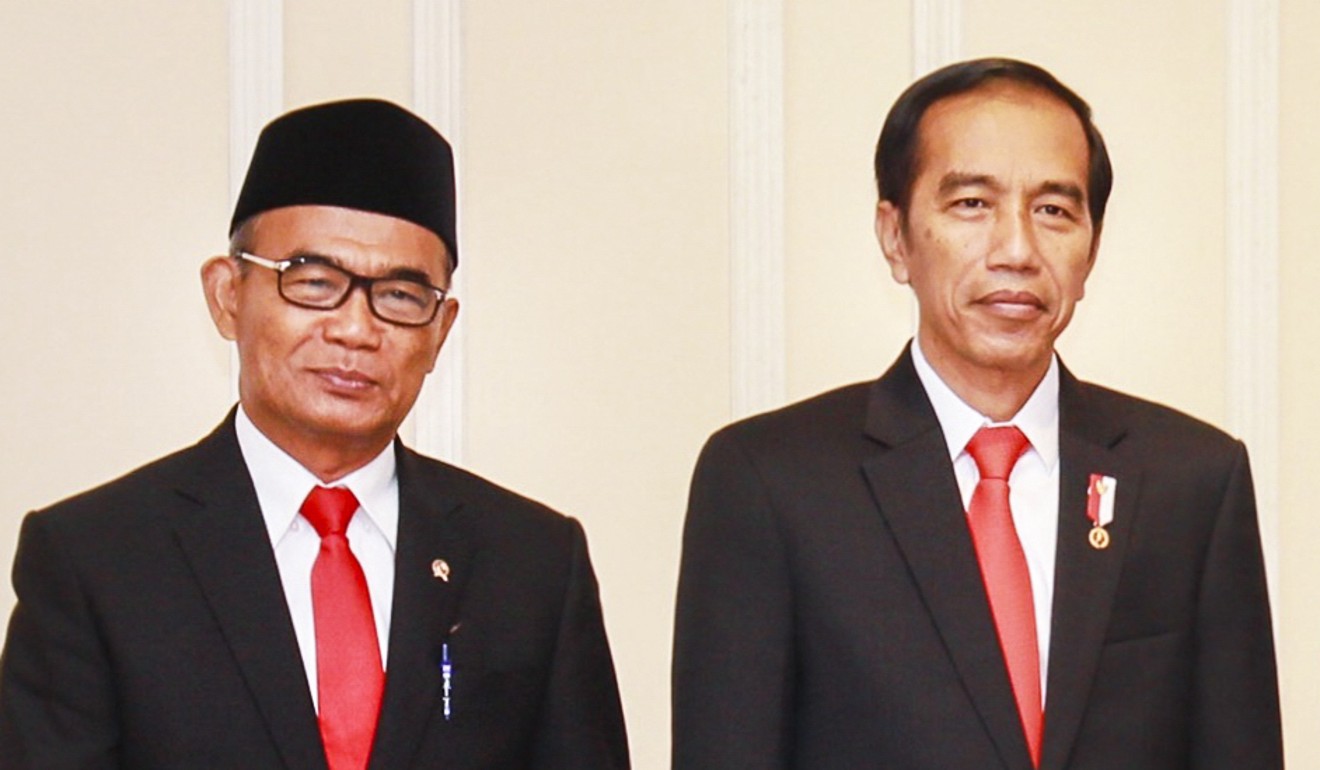
Analysis | Indonesia’s ‘family resilience’ push by lawmakers ridiculed by women and activists
- Islamic-based parties have initiated a bill that would force married women to not work, ‘rehabilitate’ LGBT individuals, and jail sperm and egg donors
- Another politician proposed a decree requiring rich Indonesian men to marry poor women in a bid to reduce poverty
The senior government minister who proposed the decree on marriage said it could be a way to reduce poverty. About 100 million Indonesians live on less than US$2 a day, in a country rich in natural resources but dragged down by endemic corruption.
Then there was a claim by a commissioner from the Indonesian Child Protection Agency, Sitti Hikmawatty, that women were at risk of being impregnated by swimming in public and private pools due to “strong sperm” in the chemically treated water – despite no pregnancies being reported from this theory or incidents of men ejaculating in swimming pools.

She was later forced to apologise.
Some of the protagonists of this campaign are members of Islamic-based political parties aiming for greater influence in a multi-ethnic, multi-religious, and secular country that despite having more than 190 million Muslims, also has prominent minority Christians, Buddhists, Hindus, Confucianists and those who practise traditional Indonesian religious beliefs.
Their ultimate goal, which they have publicly pronounced, is to turn Indonesia into an Islamic state under sharia law.
President Joko Widodo has, unsurprisingly, remained silent on this issue, despite some members of his own governing coalition supporting the bill before the public backlash, then distancing themselves from it after the fallout.
The proposed legislation, named the “family resilience” bill, and supported by several female politicians, would legally require married couples to “love each other”; wives to stay at home; LGBT Indonesians to undergo mandatory mental rehabilitation; sperm and egg donors to be imprisoned, and for adolescent brothers and sisters to sleep in separate bedrooms.

The legislation was initiated by members of the opposition Prosperous Justice Party, an Islamic-based group, but also had backing from known Islamist lawmakers whose parties are part of Widodo’s own government.
Last year, proposed changes to the penal code, which were eventually quashed, would have banned homosexuality and sex out of wedlock, both of which would result in prison time.
Millions may risk jail as Indonesia proposes outlawing sex outside marriage
Several years ago, the country’s main body of Islamic clerics, which has also been accused of corruption, issued a non-binding decree, or fatwa, banning “liberal thought”, which was widely derided and ignored.
Andreas Harsono, a senior researcher at Human Rights Watch Indonesia said: “These Islamist politicians are known to let their Islamism dictate their world views, even when those views are against scientific facts.
“The parliament should simply make facts to be the basis of their legislation. They should reject this unscientific approach of lawmaking.”

He was later reported as saying he was joking – despite making the comments at the opening address of a public forum.
“Jokes often reflect who you really are, which is pretty much an excruciatingly embarrassing indictment on the mentality of a coordinating minister of human development and culture, and former minister of education. Extremely worrying that we have ministers of such abysmally low quality in their mentality,” said Julia Suryakusuma, a prominent Indonesian author and feminist.
Fadjroel Rachman, Widodo’s spokesman, could not be reached for comment.
Attacked for refusing sex: in Indonesia, the ‘epidemic’ of violence against women
Wardah Hafidz, director of the Urban Poor Consortium, based in Jakarta, said Indonesia had now “succumbed to all this craziness with bitter jokes”.
“My take is this: let’s have his kids or whoever in his family started the move, as an example for us all,” she said, referring to Effendy. “Get them to marry poor kids from poor kampongs [slum areas]. We’ll then see if such will take care of the problems of poverty in Indonesia.
“As to the proposal to ban women from working, well, I would say all the women at the parliament should resign from their offices, stay at home, take care of the house, husband and kids,” she said.

Only around 17 per cent of Indonesia’s 575 national House of Representatives seats are occupied by women, despite a mandate to have women hold 30 per cent of the seats.
In addition, some of the most senior members of Widodo’s own cabinet would be forced to resign under the law and spend their days as housewives, including finance minister Sri Mulyani Indrawati and foreign minister Retno Marsudi.
Even Megawati Sukarnoputri – a former Indonesian president who is also the current leader of Widodo’s governing Indonesian Democratic Party of Struggle and the daughter of Indonesia’s founding president, Sukarno – could be forced to step down under the law unless she could successfully argue in court that she would be exempt because she is a widow.

